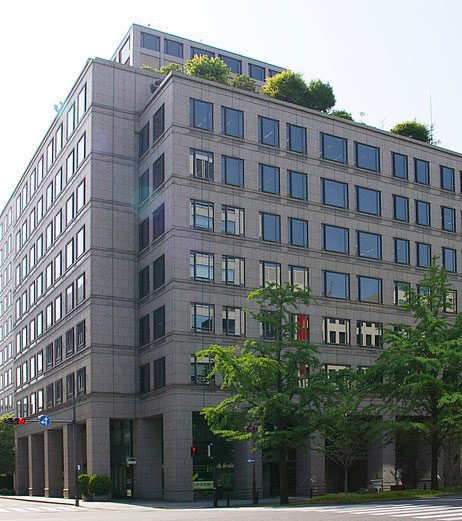Actos Lawsuits
More than 10,000 Actos lawsuits accused Takeda Pharmaceuticals of failing to adequately warn patients of the risks of bladder cancer, heart failure and other side effects associated with the Type 2 diabetes drug. Without admitting guilt — and continuing to stand by the drug’s effectiveness — Takeda settled roughly 9,000 claims for $2.4 billion in 2015.
Actos litigation is currently inactive and lawyers are not accepting cases. But at one point, more than 5,000 federal Actos lawsuits were part of a multidistrict litigation (MDL) in the United States District Court for the Western District of Louisiana. And another 4,500 lawsuits had been filed in various state courts, including Illinois, Pennsylvania, California and West Virginia.
Nine cases went to trial before Takeda announced its plan to pay up to $2.4 billion to settle lawsuits. Trial juries had ordered Takeda to pay more than $22 million to patients. Judges threw out at least two of the verdicts, but an appeals court reinstated one of them.
When announcing its settlement plans, Takeda said the company would resolve seven of the nine previously tried cases, which had been in various stages of the appeals process. At the time, the deal was one of the largest Big Pharma settlements in United States history.
The MDL closed in April 2018 because the majority of the cases in the consolidated litigation had been resolved by the settlement. In the lawsuits, patients and family members sought compensation for congestive heart failure, bladder cancer, liver failure, chronic kidney disease, bone fractures and lactic acidosis.
The main cancer in Actos cases was bladder cancer, much like the ongoing 2022 Zantac litigation. While the MDL may have been closed, some attorneys are still taking Actos bladder cancer claims.
Accusations Against Takeda and Eli Lilly
The majority of Actos-related lawsuits claimed Takeda, the drug’s manufacturer, and Eli Lilly, the drug’s marketer, knew about the risk of bladder cancer and other side effects but did not warn the public.
In 2011, drug regulators in France and Germany ordered doctors to stop prescribing Actos following a French study linking the drug to an increased bladder cancer risk.
The Food and Drug Administration required Takeda to update the drug’s warning section to include that it “may be associated with a 40 percent increased risk of bladder cancer.”
Takeda Accused of Hiding, Destroying Evidence
In 2012, former Takeda employee Dr. Helen Ge sued the drugmaker, accusing the company of hiding Actos side effects information from the FDA.

Ge, who worked for Takeda as a safety consultant in the pharmacovigilance division, said the company knew about the drug’s link to at least a dozen types of cancer but refused to recognize it.
The lawsuit was dismissed later in 2012 after a judge’s order allowed patients to join the MDL by filing their lawsuit directly with the Louisiana court.
Jurors in November 2014 concluded that Takeda officials intentionally destroyed files about the development and marketing of Actos. The West Virginia jury ordered Takeda to pay $155,000 over the destruction of documents about the drug’s link to bladder cancer.
$9 Billion Actos Verdict
In April 2014, a Louisiana jury awarded $9 billion in punitive damages and $1.5 million in compensatory damages to Terrence Allen, a former shopkeeper from New York who said Actos caused his bladder cancer. It was the fifth case to go to trial but the first in the federal MDL.
The Allen case was designated a bellwether trial. This is the name given to the first trials in MDLs. Bellwether cases are intended to help the parties determine whether to settle.
The jury found Takeda 75 percent liable and Lilly 25 percent liable, awarding Allen $6 billion in punitive damages against Takeda and $3 billion against Lilly. A judge later reduced the total to $36.8 million.
$2.4 Billion Actos Settlement
Takeda announced in April 2015 that it would pay up to $2.4 billion to settle Actos lawsuits.
By September 2015, more than 96 percent of people suing the company had signed up to participate in the settlement, Takeda said.
The amount awarded to claimants was calculated using a “points matrix,” according to the Master Settlement Agreement. Each claim was designated points based on certain criteria. The more points awarded, the more money a claimant could receive.
Criteria for Settlement Payouts
People eligible for the settlement payouts included those who alleged they had bladder cancer and first used Actos prior to Dec. 1, 2011, which is when the FDA required Takeda to update the drug’s label.

This included people with pending lawsuits and those who hired a lawyer to assert a claim within three days of the announcement of the settlement.
Criteria considered in determining the amount awarded to each claimant included:
- Extent of injury or treatment
- Age
- Length of time on Actos
- Dosage of Actos
- Additional risk factors for bladder cancer, including smoking.
For patients with particularly severe injuries, extra money was available in an “Extraordinary Injury Fund.”
Calling this number connects you with a Drugwatch.com representative. We will direct you to one of our trusted legal partners for a free case review.
Drugwatch.com's trusted legal partners support the organization's mission to keep people safe from dangerous drugs and medical devices. For more information, visit our partners page.


